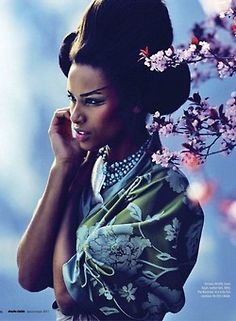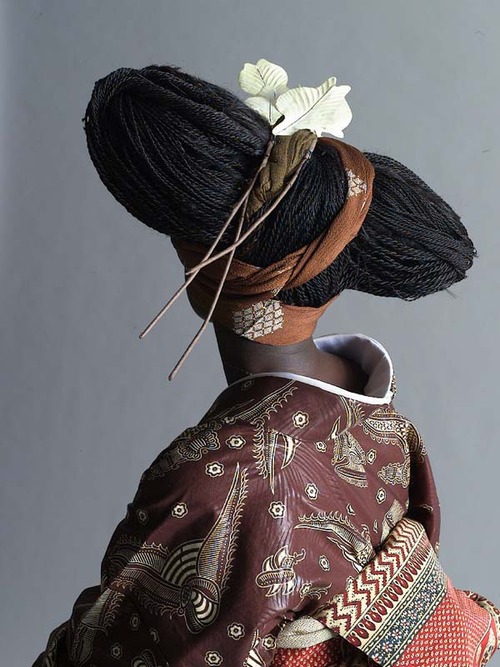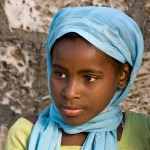 A summer Florida morning served as the backdrop for a business-ish meeting between new girlfriends and young lady bawses. Starbucks and laughter, discussions on marriage, relationships, expressions of femininity, and personal dreams took precedent over laptops and notebooks for more than half of our time together, but sometimes business is less about numbers and more about building relationships. Enesha, like most professional contacts, calls me Danielle – my birth name and the name I give to most people. So she asked a question that I rarely hear anymore – “So where did Ama come from?” I smiled, because it’s a story I’m just as rarely able to tell anymore.
A summer Florida morning served as the backdrop for a business-ish meeting between new girlfriends and young lady bawses. Starbucks and laughter, discussions on marriage, relationships, expressions of femininity, and personal dreams took precedent over laptops and notebooks for more than half of our time together, but sometimes business is less about numbers and more about building relationships. Enesha, like most professional contacts, calls me Danielle – my birth name and the name I give to most people. So she asked a question that I rarely hear anymore – “So where did Ama come from?” I smiled, because it’s a story I’m just as rarely able to tell anymore.
FAMU and their infamous MBA program greeted me less than two weeks after returning from a summer on the shores and in the bush of Mozambique. The transition was rough. I was still dazed from reverse culture shock, amid Finance classes and a body that refused to readjust to American food. I tried to stay connected to that African perfection, and connected with the Afrocentric crowd. Ankara prints and brass earrings and natural hair and spoken word and the self-identifier Conscious adorned them; my Mozambican brothers and sisters wore none of these, but I made a home in this new space in an effort to prolong the connection that was made thousands of miles away.
One of my favorite movies of all time is Memoirs of a Geisha (shoutout to YouTube for having the ENTIRE movie!). In the scenes where Chiyo becomes Sayuri, and later Nitta Sayuri, each stage signals that sometimes a change in your identity, purpose, or role in life requires that you also change how a community identifies you.
I became a new woman as a result of a new awareness. Learning my history, learning myself, learning my community, experiencing an Africa that fed my soul (and not sick stereotypes) planted me in a new soil. I grew from that space, and thus grew out of my name. So when the Community began to buzz about the 2010 Sankofa Conference in D.C., I went with the purpose to earn a new title for the person i’d become.
Some cultures recognize a change in your identity, purpose, or role in life by granting you with a new name.

My community sisters on the day of arrival.
There were a few hundred people at the conference from across the country, and it was here that I began relationships with women who would go on to become my godsisters, teachers, and great spiritual warriors. The Akom came, a spiritual congregation between Akan dieties and man. It kicked off explosively, like the downbeat on a djembe, and I felt well connected in a deep and immediate way. This was my first time encountering an African spiritual celebration, and I was home.
And then it ended, and I was worn out and covered in powder and sweat, smiling and insatiably rubbing on my belly like something had been planted inside of me. An Akan priest from Ghana was there seeing people one-on-one, so I stood in line to meet the elder, desire in hand. I entered what seemed like a closet, dimly lit just enough for the priest, his assistant, and myself to see each other. I knelt before him as instructed and looked him in the eyes. The old man laughed with his whole face, lifting heavy lids from his twinkling eyes, and said with a heavy accent said “You want some’ting!”
“Mimi…I want a new name,” I confessed. He laughed again, and spoke to the woman in Twi. “What day of the week were you born,” she asked me. When I told her that I didn’t know, she went and retrieved a phone to look up my date of birth. The two of them spoke again in the other tongue until he looked at me and said Ama, the name given to a girl born on a Saturday. He chuckled, then composed himself to place his hand on my heart and closed his eyes. He breathed, and I joined him in breath. I closed my eyes and we remained in sync like this for a few moments, just breathing, until he broke the silence to announce “Adobea – one who likes love and hard work.”
I was overcome with a stability in this name. How could he know me so well, the free-loving woman with a hustler’s heart?! He coated my head with a white powder, a sign of his blessing. And when I knelt at his feet again in supreme gratitude, the woman cried out in Twi, and placed her finger at the back of my neck where I had a new SANKOFA tattoo. Once again, the old man laughed heartily, slapping a hefty dose of the powder on my tattoo, sharing its name with the conference that translates as “Go back and fetch it” – a charge to learn from the past and apply these lessons to the present.
I’m still thankful every time someone calls me Ama, especially those who know Danielle. They accept the name and thus support the journey, reaffirming and agreeing with the woman I’ve proudly become. 
Utamaduni Rebranding: New Mwanamke, Jina New.
Aliongoza kwa falsafa Bob Marley ya "Hakuna lakini wenyewe wanaweza bure akili yetu", Orijin ni ya kipekee "Utamaduni Brand" kuunganisha wazao wote wa Afrika pamoja kwa njia ya ni Fashion brand na mawazo ya kuchochea magazine kushawishi dunia yetu maisha pana ... .Don't tu kuvaa Utamaduni, Utamaduni na.
Latest posts by Ama Mckinley (kuona yote)
- Utamaduni Rebranding: New Mwanamke, Jina New - Septemba 22, 2014




